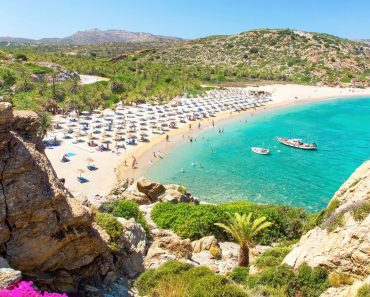In October 2023, I went to the Greek islands chasing Leonard Cohen’s ghost — the same one that pulled him to Hydra in 1960, where he stayed seven years, fell in love, and wrote some of his most beautiful songs.
But when I returned in winter, more than a year later, the island I found myself on was not Hydra.
It was a place I had never heard of, where flamingoes rested in silent lagoons, tiny hill-top churches opened onto stunning views, and the goddess of winter still ruled.
Picture-perfect Hydra, with its quiet grandeur shadowed by the melancholy that wealth often carries, felt heavy.
Its amphitheatre of whitewashed houses faced the Aegean with theatrical generosity, like a stage set awaiting its next drama.
But something — perhaps the ghosts of Cohen, his circle, and that particular sadness that makes for great songs but a troubled existence — pressed in.
I wandered back to the port, where hard-working donkeys stood laden with produce, ready to climb the island’s car-free slopes. And I sailed away.
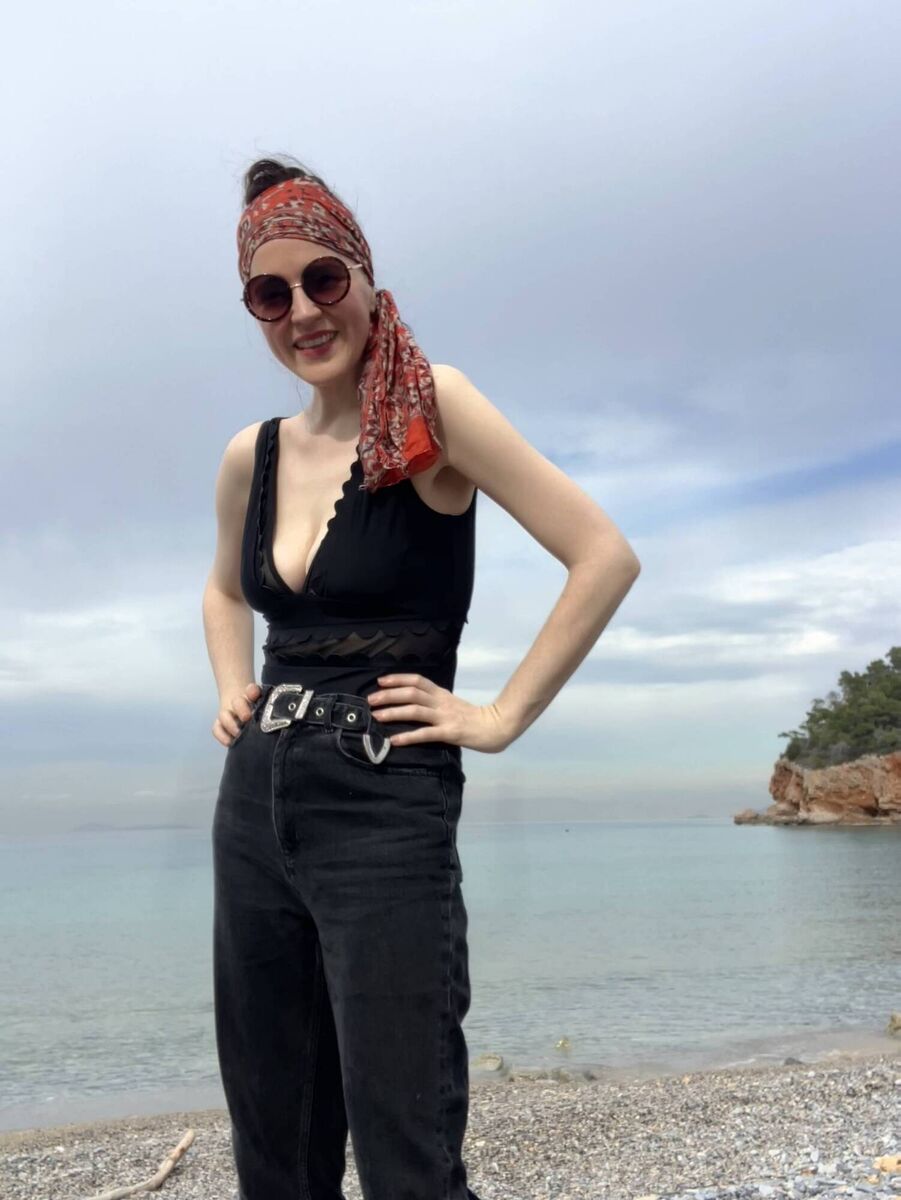
I chose Agistri, a small island also in the Saronic Gulf. Every Greek island seems to have its own personality, a god, a saint, or a spirit.
Agistri’s unassuming holiday flats, beat-up mini-markets, and untamed hedges reminded me of Ireland’s west coast. It felt familiar, a little wild, and deeply human.
On that first trip, I stayed four nights. Conversation came easily — with the restaurant staff, the owners of my accommodation, and a taxi driver who, on hearing I was an Irish singer, gave me a discount.
“My best friend is from Limerick,” he said, pointing to a shamrock decoration stuck on the dash before scrolling quickly to the Cranberries on his music streaming service.
“Agistri means ‘hook.’ You’ll get hooked. Nobody just comes here once.”
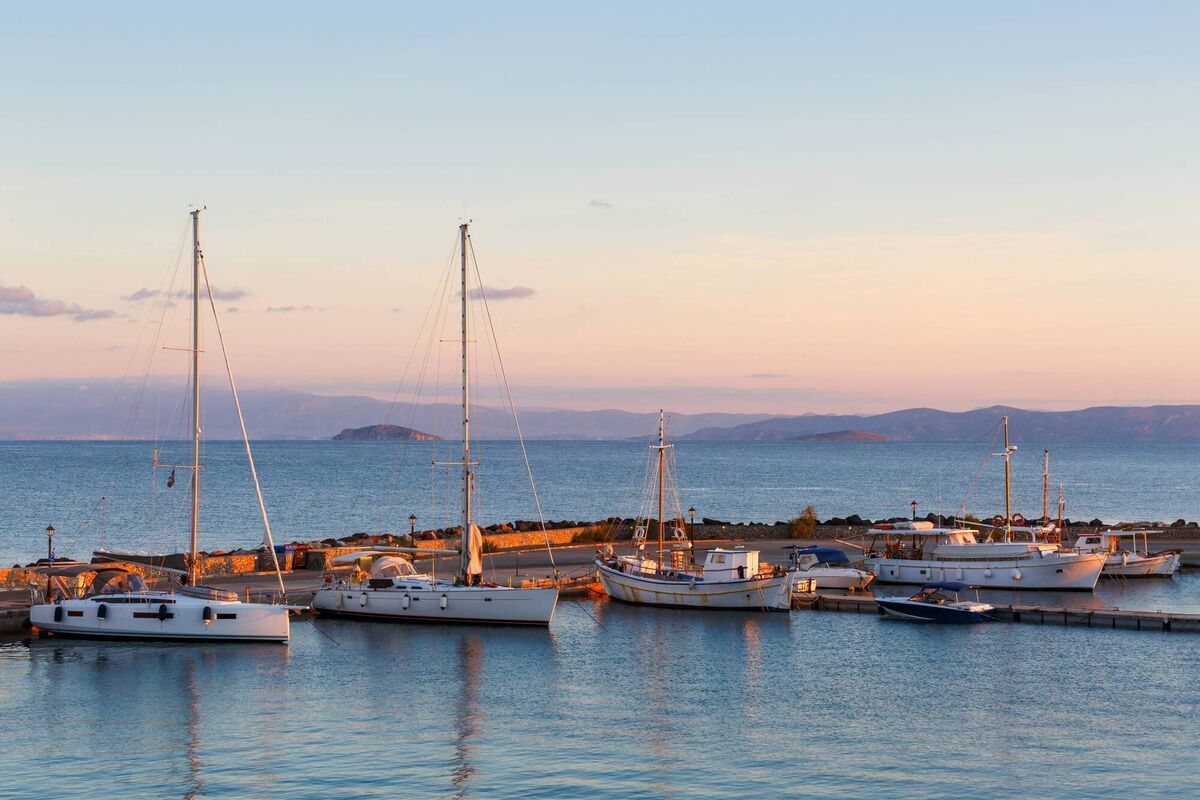
The owners of the taverna I adopted as my local agreed. One told me she’d be happy to spend the coming winter in Athens after two spent here.
“It was calming, you know,” she said, perched on a bar stool, knees bent high like a roosting bird, exhaling cigarette smoke out the side of her mouth.
“Every morning I’d get a coffee from the bakery, follow the forest path to the small church halfway up the hill, meditate… the simplicity of it put me back together. I’m ready for the city now.”
Waiting for the return ferry to Athens, I got chatting with a woman and her mixed entourage — freelancers, artists, healers — all caught by the island’s gentle spell. When I mentioned I was an artist, she looked at me with a wise warmth.
“If you need space to work,” she said, “we can sort a rental. It’s a dream here once the season’s over.”
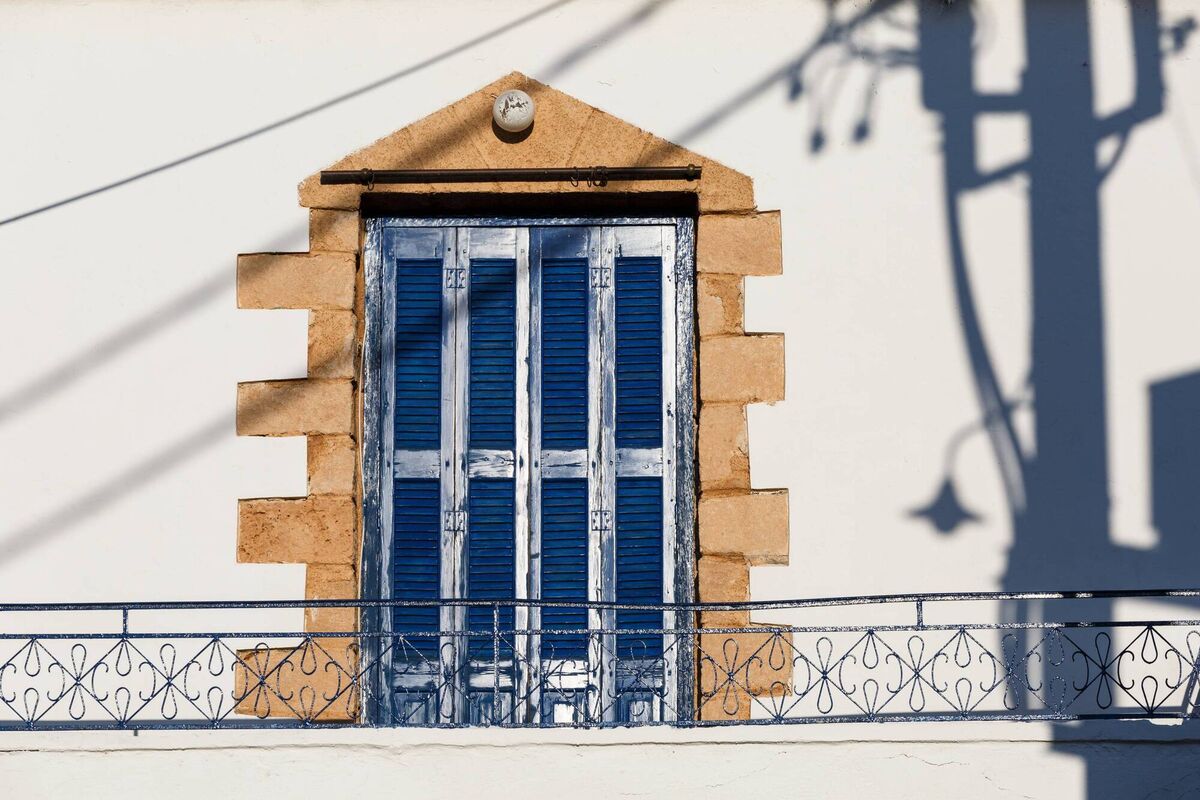
Over the following months, this woman and I exchanged messages about our work and the strange, suspended feeling I was in — low on funds, weary in spirit.
Eventually, I said yes. I left grey, aching Paris for that small, almost-forgotten island where Persephone, goddess of winter, reigned. I wanted to see what her months would offer.
Agistri in January was nothing like Agistri in October. Back then, the bars and restaurants were still open in the island’s three tiny villages; the roads lively, the beaches humming faintly with the last of the summer visitors. There was a Sunday-night-before-school feeling in the air.
By winter, the island was a ghost town. The taverna I’d once frequented sat shuttered and dust-covered.
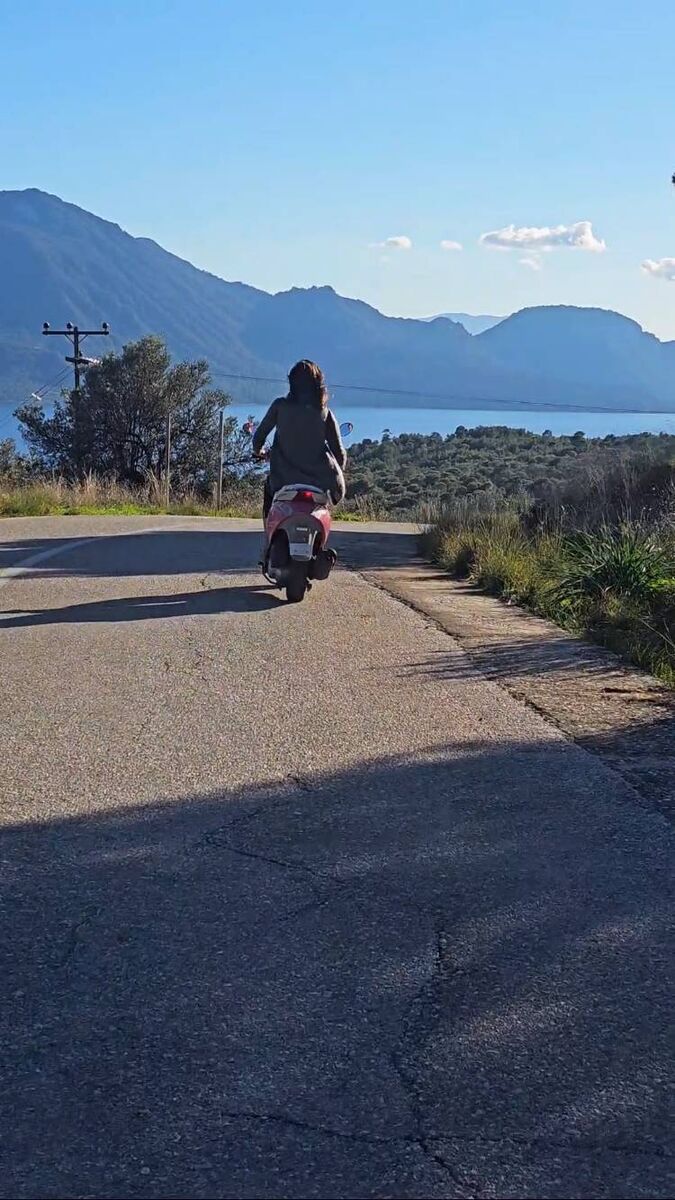
There was one café at the second port, two bakeries open at strict hours, and a small main supermarket near where I lived that doubled as the post office — three narrow aisles, limited produce, closing for three hours every afternoon and all day Sunday.
On my first visit, the shopkeeper warned me, “We’re shut Sundays.” And sure enough, that first Sunday, I woke to three eggs and an apple in the kitchen. Thankfully, the bakery opened for a few hours before the last church service. I didn’t forget again.
My home was a white loft hemmed in by lemon trees on three sides, the fourth open to the sea. One afternoon, after I picked fruit from a low branch, a local arrived with a smile, a string of soft Greek I couldn’t quite follow, and two sacks of citrus.
The house, built for summer, had only an open fireplace for heat. I had lived in cities all my life, never camped, never joined Scouts. I was bad with the fire.
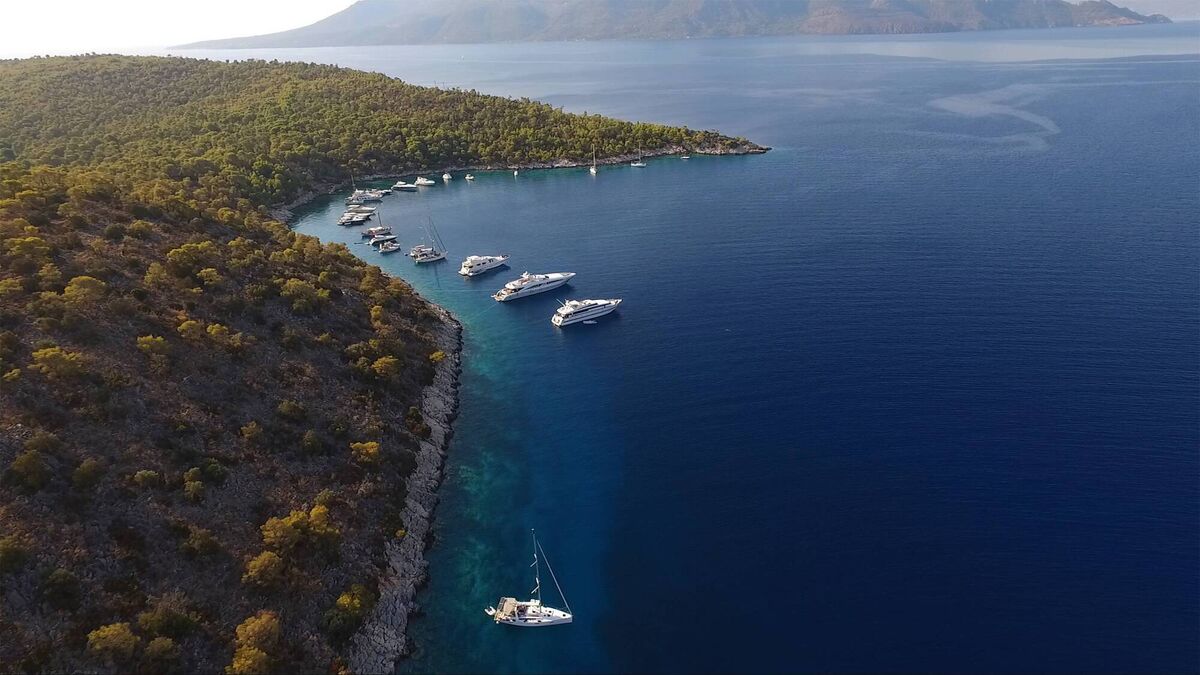
More than once I filled the place with smoke and retreated under blankets with a hot water bottle I found tucked into a wardrobe.
A year-round islander eventually gave me a fire-building lesson. I improved. “Siga-siga,” he said — the famous Greek phrase, and way of life — “slowly, slowly”. “Take your time, or you’ll kill yourself,” he only half-joked.
What does a woman in her thirties do on an almost-empty Greek island in winter? I walked — long, quiet, cleansing walks.
Sometimes I spoke aloud to myself on the empty roads, and the pines, the sea, the flamingoes pausing at Lekani lake seemed to answer back.
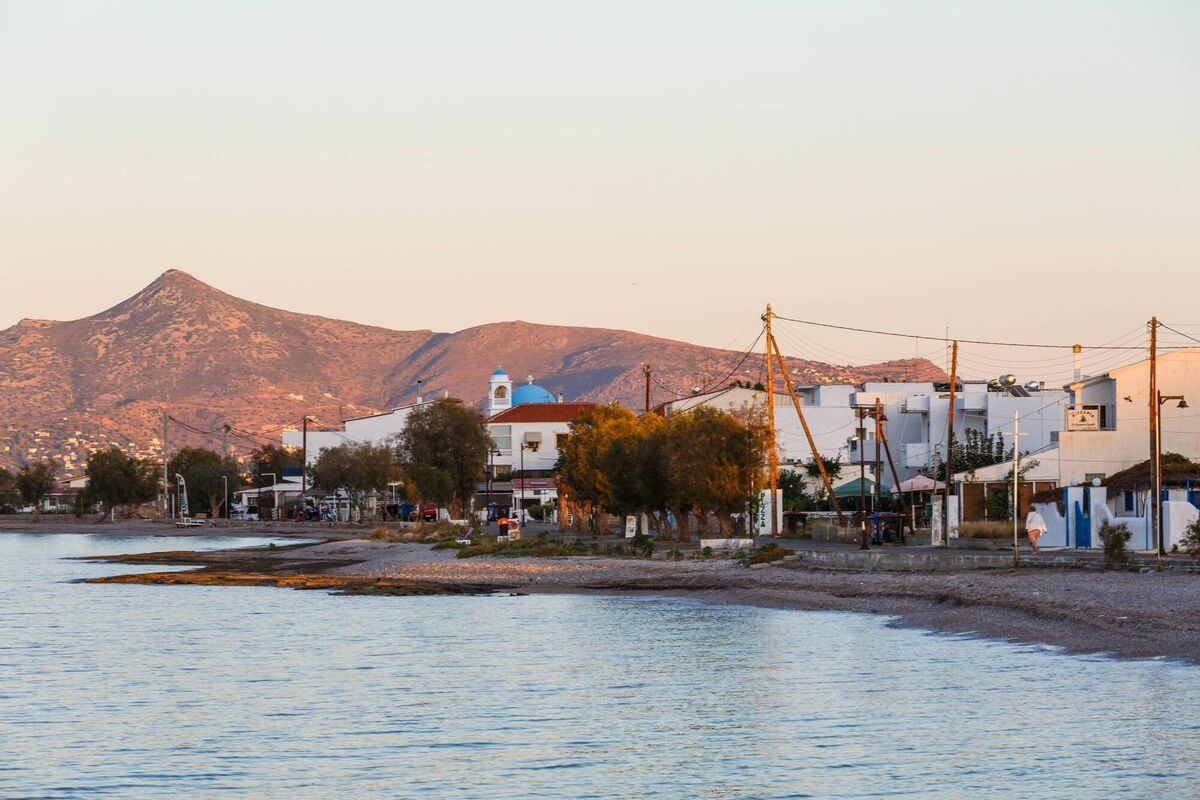
I climbed rough forest trails to the churches in the hills, tackling brambles like a child again.
Agistri, the greenest of the Greek islands embraced me: Evergreen branches bowed above, the forest floor a carpet of tiny ivy hearts. Spring was coming.
The beaches were empty. To Irish blood, the Mediterranean felt warmer than home in July. Tiny fish glittered in the water before me — a private show.
A passing companion, with opposite tastes and rarely moved by the same things, saw a snapshot of my life there and, briefly, approved: “Nice hideout you’ve found yourself.”
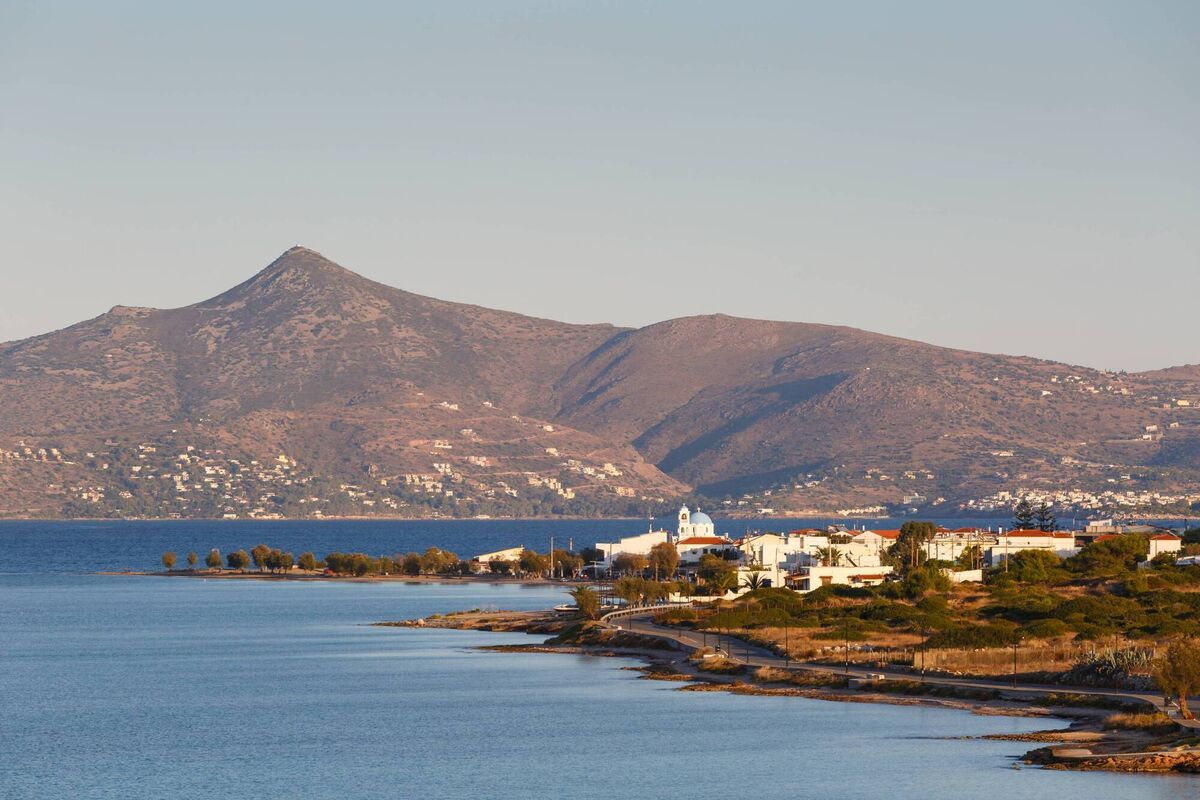
I learned to follow the sun and the moon, to gather enough tinder before sundown. The forests were best walked when the sun was high.
For the first time, I moved entirely at nature’s pace, bending with her curves. It was quiet, pure nourishment.
At night, I painted what I’d seen — slow watercolour strokes. I gathered fallen banana-yellow bougainvillea and set them on the table, their perfume filling the room.
Each morning, I followed the taverna woman’s ritual: a cinnamon-dusted cappuccino from the bakery, a climb to the gleaming Orthodox church, lighting the tall, twig-like candles, and carefully tying the door shut with a rope, readying it for the next visitor.
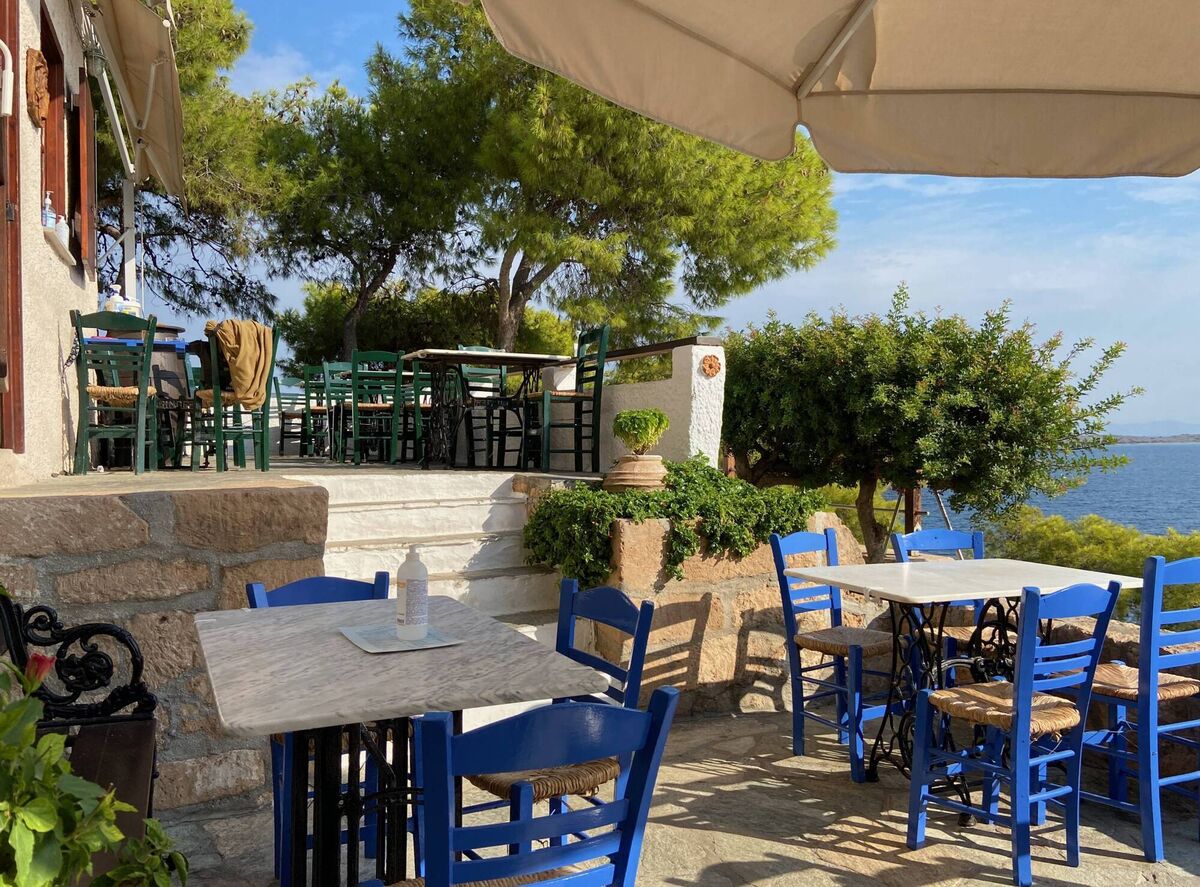
Sitting outside, with the view as my reward, I’d gather words, shaping them for song or prose — a gentle unravelling of inner, tangled threads.
Travelling alone isn’t always easy — and the quiet on a near-deserted island can feel vast. But in that space, I found something unexpected: The chance to truly listen to myself, to move at my own pace, and to be gently reshaped by the rhythms of a place far removed from the noise of everyday life.
It’s in that solitude that the world opens up — not just around you, but within.
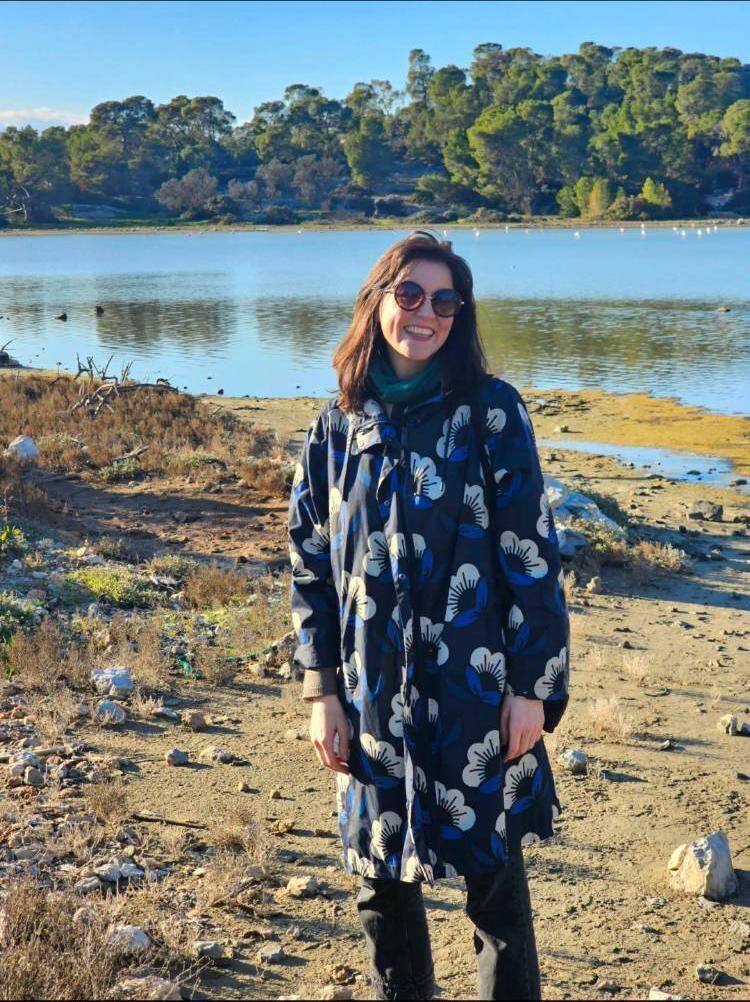
In some way, my winter, embroidered with simple rituals, felt connected to the Cohen who once sailed from Piraeus in search of his own island adventure and found love and refuge in return. No human muse here, but ancient hills, trees, and the endless abundance of the sea.
I had been nursed and steadied, just in time for spring.
When the deep blue of the Aegean carried me back to Athens, I understood what solitude had offered: Not quite a remaking, but a soothing — light poured into the cracks, siga-siga — ready for the seasons ahead.
- Aer Lingus, Ryanair, and Aegean Airlines offer direct flights from Dublin to Athens during high season. In the low season, flight schedules are reduced, so you may need to book a connecting flight via European hubs such as London, Paris, or Amsterdam. From Athens, ferries run multiple times daily year-round from Piraeus port to Agistri, with crossings taking around 45 minutes to an hour.
- In winter, Agistri is peaceful and accommodation affordable, with basic studios and apartments starting at about €400 per week. Booking ahead is recommended, especially for off-season stays.
- The island is small enough to walk across in under three hours, but renting a scooter or bicycle makes it easier and more enjoyable to explore Agistri’s hidden corners.



